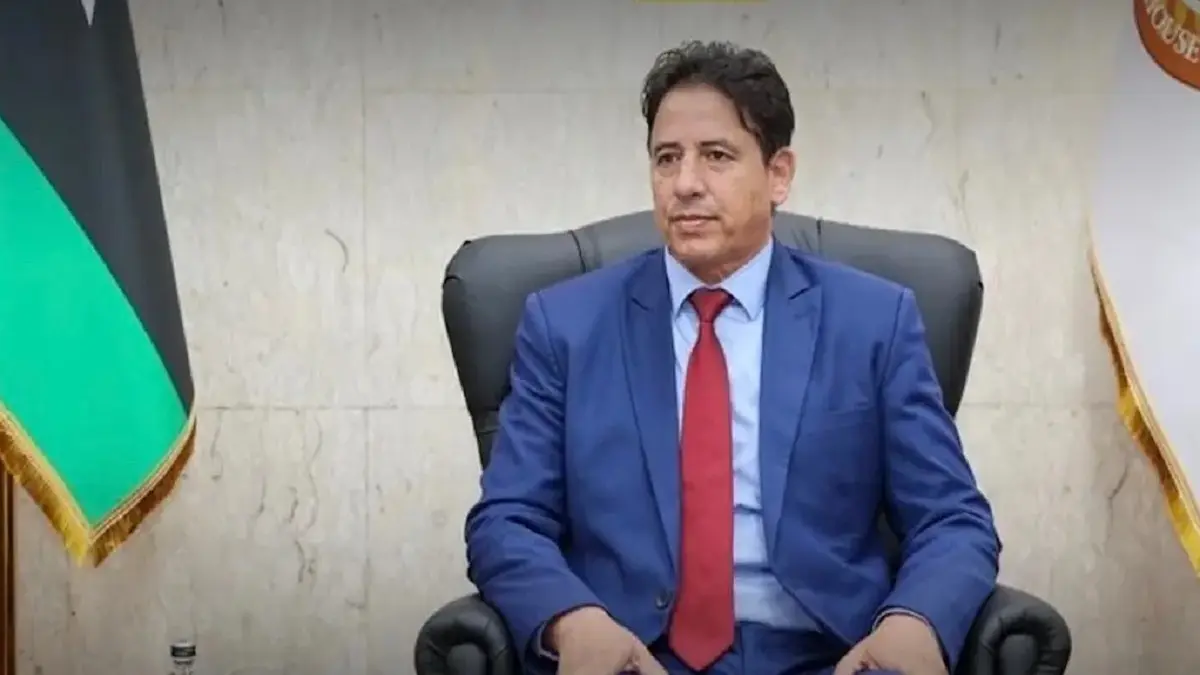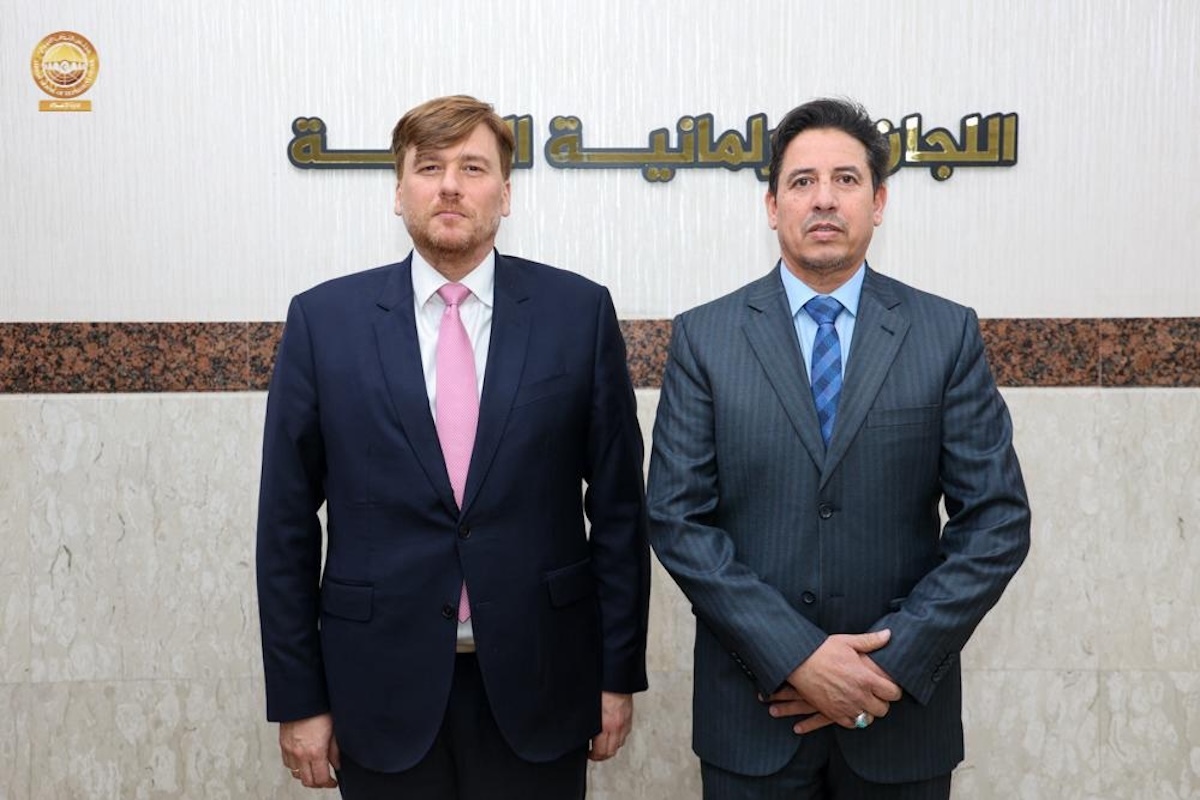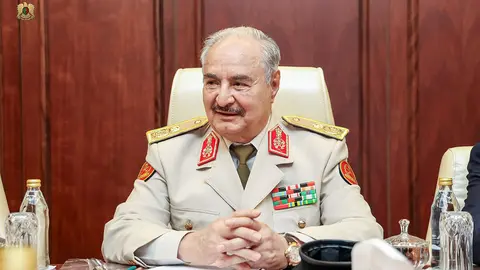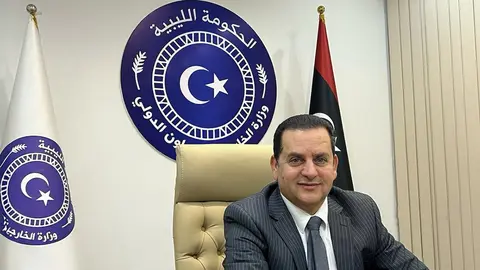The UN is responsible for the division in Libya
The chairman of the Foreign Affairs Committee of the Libyan Parliament, Yousef Al-Agouri, blames the United Nations for the political division in Libya

The Libyan Parliament blames the UN for the political division in the country by maintaining recognition of the government in Tripoli even though it should have ceased after the elections of the members of the legislative chamber that legitimately governs the destiny of the North African country and with security and stability thanks to the key action of the Libyan National Army under the command of Marshal Khalifa Haftar.
The president of the Foreign Affairs Committee of the Libyan Parliament, Yousef Al-Agouri, assures a group of Spanish journalists, at its headquarters in Benghazi, of Libya's interest in maintaining good relations with all countries, as is the case with the European governments of Italy and France, or with Turkey, which has accepted the new Libyan reality, and calls on the Spanish government to promote bilateral relations after its meeting with the Spanish ambassador, Javier Soria, and to overcome the discrepancies created by the classification of the Libyan National Army as a militia in a report by the Spanish Civil Guard.

The Congress is made up of 200 deputies from all over the country. Since 2011, Libya has been ruled by two rival governments: the Government of National Unity (GNU) of Abdelhamid Dbeibah, recognised by the UN and based in Tripoli (west), and the executive in Benghazi (east), with control of more than 80% of the country, led by Osama Hammad, the only legitimate government elected by parliament with the support of the Libyan National Army, which managed to defeat the Daesh terrorists.
He argues that ‘parliament is the only body that controls Libya because it is elected by the whole of Libya’ and calls for ‘respect for the will and sovereignty of the Libyan people’. When ‘the parliament was formed in 2015, the president (Dbeibah) did not want to give up power and hand it over to parliament’, he argues.
After the divisions that emerged during the protests that overthrew Muammar Gaddafi in 2011 and the internal wars of recent years, Al-Agouri emphasises that ‘the goal of the parliament is a single united country’ and says that ‘the conflict in Libya is only political in nature, it is not a tribal problem’ and that today ‘there are fraternal relations between all citizens’.

An important step in this direction was the reconciliation agreement signed between the Tubu ethnic group and the Arabs in Murzuq, in southern Libya.
And in January the parliament just passed a National Reconciliation Law in the interest of achieving the unity of Libya in the future and the holding of elections that have been awaited for years to end the conflict between the two opposing governments.
The president of the Foreign Affairs Committee of the Libyan Parliament points to the international community and the UN as ‘solely responsible for the division in Libya with their support for Tripoli’ and says that ‘when the support for Tripoli stops, this will end’.
The UN, he continues, ‘is not in the business of resolving conflicts. It supports instability in Libya, it supports armed groups and it hinders the army’. He claims that ‘Haftar ended the armed groups responsible between 2014 and 2017 for the massacres in the streets and mosques, and liberated the oil wells, which were in the hands of the extremists’.
Al-Agouri points out that the new United Nations representative in the country will ensure that the agony continues. Benghazi expects nothing from Hanna Telleh, the newly appointed special representative of the UN Secretary-General in Libya, nor from any of her predecessors.
The UN, present in Libya since 2011, ‘intends for the agony to continue. It is not focusing on basic things, only on secondary things’, says Al-Agouri.
He maintains that ‘the new representative is going to be advised by officials who have been here since 2011. We have asked for these officials to be changed’.











